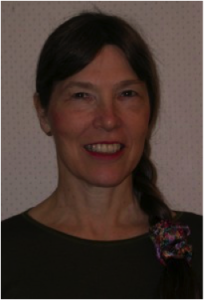Teacher Workshop Highlighting NIEHS, MIT Partnership Draws Record Number of Applicants
For the past 23 years, NCABR has partnered with its membership to host one-day K-12 teacher professional development workshops on hot topics relating to bioscience research and careers.
While it is common for most all of the programs in the annual Rx for Science Literacy workshop series to draw 22-25 participants and as many people on a waiting list per program, NCABR workshop coordinators were stunned this winter when 106 teachers registered to attend a workshop on human genetic variation in February. Never before had so many teachers attempted to attend a single program in the annual series, which averages eight workshops per year.
“It took us aback to see such a tremendous outpouring of teachers who were interested in attending a single program,” said NCABR President Suzanne Wilkison of the workshop that took place February 10 at the National Institute of Environmental Health Sciences in Research Triangle Park.
“We have grown accustomed to the programs in the Rx for Science Literacy series having enough teachers on each waiting list to fill a second workshop,” Wilkison said. “To have 75 teachers on a waiting list — enough to fill three additional workshops – in addition to the 31 teachers who actually were able to attend the program is just phenomenal. It speaks to the vital importance of research institutions opening their doors and allowing our educators to visit and learn from their scientists. This is something that just hasn’t diminished over the years – the need for K-12 educators to connect with bioscience researchers to share information that will flow back to our children in the schools.”
Since the workshop series began in 1994, more than 4,660 teachers from 96 of North Carolina’s 100 counties have participated in 255 workshops held throughout the state at dozens of NCABR member research facilities.
The popular Rx for Science Literacy workshop in February featured an NIH curriculum about the basics of human genetics, and it addressed the potential to improve human health and applications for understanding human evolution. The workshop also featured instruction by Dr. Kathleen Vandiver, Director of the Community Outreach and Education Core at the Center for Environmental Health Sciences at the Massachusetts Institute of Technology. Dr. Vandiver instructed the teachers using the MIT Egerton Center RNA/DNA curriculum and protein sets, which were developed with a grant from NIEHS.
MIT’s Dr. Kathy Vandiver
“We were grateful for Dr. Vandiver’s willingness to come to North Carolina to work with our educators,” said Regina Williams, NCABR’s Director of Programs, who coordinates all K-12 teacher workshops and programming. “When you have 106 teachers attempt to attend a single workshop, you know there is substantial interest in the science and in the curriculum resources. It’s our mission to make sure our state’s K-12 educators have access to the latest bioscience research content. Our goal going forward is to continue these workshops, and with any hope, bring Dr. Vandiver back to North Carolina to share her expertise with more teachers who may have wanted to participate in her program this past winter but were unable to do so due to capacity limitations.”
Ms. Williams noted the ongoing need for more workshop sponsorships and that those institutions interested in sponsoring a teacher workshop for K-12 educators should contact her at rwilliams@ncabr.org. “We long have been unable to meet teacher demand for our workshops,” Williams said. “It’s a rewarding experience for the scientists, and it’s a valuable exchange of information for all attendees. If you have scientists, then we’ll bring the teachers – as many as you can accommodate. We just never seem to run out of interested educators, even after so many years of running these programs.”


